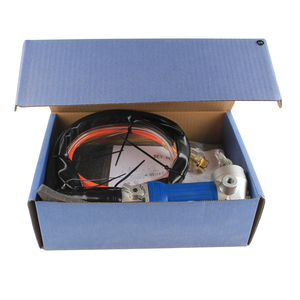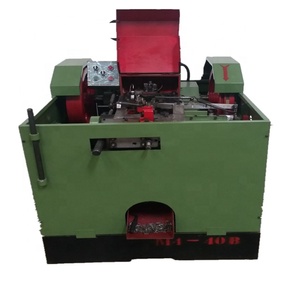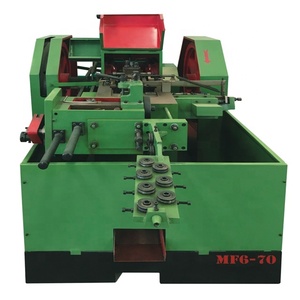
All categories
Featured selections
Trade Assurance
Buyer Central
Help Center
Get the app
Become a supplier

(6251 products available)




















A thread grinder is a special type of grinding machine used to grind the threads on taps and other tools that have irregular shapes and sizes. Generally speaking, there are two common types of thread grinders:
It's worth noting that CNC thread grinders are prevalent in the modern thread grinding machine market. They have a computer numerical control system to achieve higher precision and automation. Moreover, thread grinding machines with 5 axes can perform complex machining operations with high efficiency and accuracy.
The thread cutter machine's specifications depend on the type and model. Here are some specified details of the thread grinder cutting tools.
Capacity
The capacity of the thread grinders refers to the maximum work piece diameter and length they can trim. The capacity varies due to the different types of thread-cutting machines. For instance, a bench thread cutter has a maximum work piece capacity of 50 mm, while a heavy-duty thread grinder has a capacity of 80 mm. Moreover, some thread cutters have variable capacities that businesses can adjust depending on their projects' requirements.
Power
The power of a threading machine determines its capacity to cut threads on various work pieces. It varies depending on the models and types. A standard bench thread cutter has a motor power of 1 HP, while a floor machine boasts a motor power of about 2 HP. Furthermore, heavy-duty machines with powerful motors can reach between 5 to 10 HP.
Feed Rates
It refers to the speeds at which the work piece advances through the cutting tool. Different thread grinders will have distinct feed speeds depending on their models and types. The feed rates influence the machining processes' efficiency and accuracy.
Cutting Methods
Some thread grinders have multiple cutting methods such as pecking, plunge, and radial cutting. Each of the techniques has its unique features that impact the machining process's efficiency and precision.
Regular maintenance of a thread-grinding machine improves its product quality and operational performance. It ensures the equipment works smoothly and reduces the frequency of breakdowns. Here are some essential machine maintenance tips:
A thread grinding machine is used widely in the plumbing and automotive industries. Here are some common application areas for the thread grinder in these sectors.
When buying thread grinders for sale, it's worth focusing on a few essential features and thread grinder machine uses to know better what the target audience needs.
Flexible Collet Clamp
Collet clamps with varied sizes are typically preferred by manufacturers and mechanics, as they can hold different kinds of taps. The flexible collet also allows for holding taps at any angle or position, which is a crucial feature when dealing with irregularly shaped or difficult-to-reach threads.
No-Rock Base
A gripping base that doesn't rock or slip during the tapping process is essential. Such bases provide stability and precision, ensuring the thread tapper's accuracy and effectiveness.
Stable and precise clamps suitable for thread grinding machine suppliers can guarantee the quality and usefulness of the machines for sale.
Protection against Rust and Corrosion
Rust and corrosion protection can significantly impact the lifespan and performance of a grinder product. Therefore, it's necessary to ensure that the machine to be purchased offers this kind of protection.
Storage Bag for Safety
Parts of the machines can get misplaced or broken without a protective storage bag. Hence, it is necessary to get a thread grinder with a storage bag to protect and safely store the machine.
By focusing on these factors, buyers can better understand the needs of their audience and choose machines likely to meet their requirements and expectations. It's worth examining buyer reviews on these features to know what users like and what specific aspects they complain about.
Q1: What are the benefits of using thread grinding machines?
A1: The thread grinding machine offers high accuracy and precision when grinding the threads of different shapes and sizes. The machine provides a smooth finish on the threads with close tolerance. Machine thread grinders have a longer life as the wear and tear are less on the tools. They can easily withstand high stress and load. The threads produced are highly accurate and precise. The machine can be used to manufacture large quantities of products efficiently.
Q2: What are the types of thread grinder machines?
A2: The thread grinding machine can be classified into five types based on the threads they can cut and the placement of the workpiece. They are the universal thread grinder, pistol grip thread grinder, plunger thread grinder, CNC thread grinder, and hydraulic thread grinder. Each type performs its functionality with excellence.
Q3: Are grinders and thread grinders the same?
A3: No, functionally they are not the same. The thread grinder is specifically designed to grind internal and external threads. The thread grinder also makes gears and tents with high precision. The regular grinder breaks down bigger objects into smaller ones and may grind threads poorly.